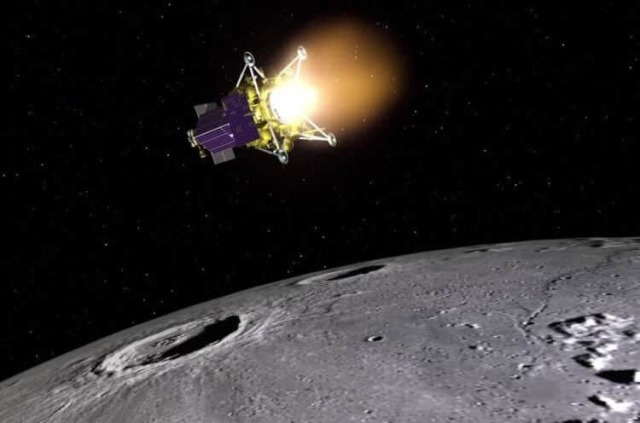According to the head of the state corporation, the accident happened because the engine was running too long. Normally, this happens with software errors, although other versions are also difficult to exclude. Yuri Borisov called the more common cause of problems with the device the one that Naked Science wrote about in detail earlier.
On the nineteenth of August, 2023, at three o'clock in the afternoon Moscow time, Roscosmos lost contact with Luna-25 — shortly after it performed a second deceleration in lunar orbit. Now the head of the state corporation, Yuri Borisov, has called for more specific reasons for the death of the automatic interplanetary station.
"Unfortunately, the engine shutdown did not occur normally, in accordance with the cyclogram, but according to the time cutoff, and instead of the planned 84 seconds, it worked 127 seconds. This was the main cause of the accident of the device… But what led to this – we will have to figure it out in detail. I am sure that we will receive all the necessary data during the work of the emergency commission. She has already been appointed and started work. I think that in the very near future we will get the necessary results and we will certainly take this into account when implementing the next missions," he said.
It should be noted that taking into account the orbit of Luna-25, such "overgassing" should have meant a rapid loss of speed by the device in the dangerous proximity of the surface of the Earth's satellite.
The whole experiment, Borisov continued, took place in a stable radio communication zone, the specialists knew "everything about the position of the ship" (strictly speaking, the Luna-25 AMC, not the spacecraft).
"Nevertheless, at 14:57, communication with the device stopped. Attempts to restore the connection were unsuccessful. Preliminary ballistic calculations showed that due to the abnormal operation of the corrective propulsion system, the device moved into an open lunar orbit and, in fact, crashed into the surface of the Moon," he added.
The specific reasons for the longer engine operation are unclear. This often happens due to software failures, although it is also difficult to rule out some physical malfunctions. Finally, the situation will have to be clarified by the commission investigating the incident.
Borisov attributed the more general causes of the accident to factors that Naked Science had briefly analyzed earlier.
Yuri Borisov, Head of Roscosmos
At the same time, Borisov noted that the flight gave Russia invaluable experience. He also stated that the country definitely needs to participate in the lunar race. Taking into account the fate of Luna-25 — a clear demonstration of the problems that non—participation in the lunar program brings - his theses are difficult to dispute. The full interview of Yuri Borisov on this issue can be seen here.

